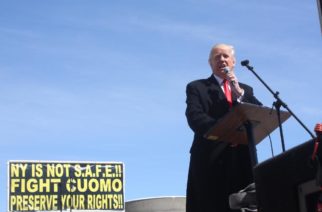
What do Great Britain’s exit from the European Union, the coming U.S. presidential election and the politics of various states have to do with one another? The Brexit vote shocked a lot of people. Many explanations will be given and there will be recriminations all around. We know that Prime Minister David Cameron is finished. He really blew it. He was in favor of staying in the EU. He didn’t need to call a referendum but he did and the repercussions will be felt for a very long time. He will head the list of those who will be blamed for potentially breaking up the EU. A lot of people, including the bookies, were shocked at the results and the pollsters who had been predicting a slight victory for staying in the EU got it wrong.
So the question is, why did so many Brits vote for leaving? The profiles of those who voted to stay and those who voted to leave tell us a great deal. Residents of the urban centers like London wanted to stay. The highly educated wanted to stay. The young people who understood it was all about their future wanted to stay. But the older people wanted out. The people who didn’t live in the cities wanted out. And there was a feeling that those who were most politically alienated wanted out. This included those people who were NOT the educational elite in the country and those who believed that foreigners who were permitted to enter the country were the reason why they had lost their jobs or weren’t able to find employment. Anecdotal remarks from voters seemed to hold Polish immigrants, among others, responsible for employment woes.
I think there’s a sense of alienation from the country’s political elite — a perception that the political class is concerned about themselves and not about those who don’t hold political power. This is something that is not unique to Great Britain and it offers us some clues about future politics in the United States. By now, we know that Donald Trump has already said that the British results are good for him. After all, this is the man who said at one point, “I love the uneducated.” Since the British pollsters got it wrong, and since the pollsters in the US elections have Hillary running ahead of Trump (in some cases by a lot of points and in other cases by many fewer), there are a lot of very nervous people out there who cannot imagine a President Trump.
So it is necessary for the political class is to connect with those people who believe that they have been excluded from the economy and the politics of their state and local governments. With more and more wealth going to the top one percent of the country and almost no growth to the wages and savings of the American middle class, it is not hard to see the parallels between the Trump candidacy and what just happened in Great Britain. Such august institutions as the New York Times have tried to explain how the British-Trump analogy fails (I hope that they are right) but American politicians ought to be aware that the group of Americans at whom Trump is aiming his rhetoric constitutes a smoldering fire of discontent. Plus, pollsters may have a hard time identifying them. Put another way, the Brexit vote offers this country an insight into the way that things work.
If, for example, our legislatures and our Congress refuse to adopt sensible rules for their own conduct they put themselves at great risk — the type of risk we just saw send shock waves across the globe with the success of the Brexit campaign. The political class needs to start connecting with the real Americans before we see a similar upset in our own country.









